Reviewer Recognition
Our reviewers are essential in supporting the publication process of Oncogene. Their knowledge and critical evaluation is key and always appreciated.
To show our thanks, we present here the profiles of those awarded our 'top reviewer' accolade in recent years.
2023
Hannelore Heemers - USA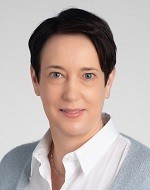 Dr. Hannelore Heemers received her B.S. and M.S. degrees in pharmaceutical sciences from KU Leuven (Belgium) and obtained a Ph.D. in Medical Sciences for the same institution. She pursued post-doctoral training at the Mayo Clinic, MN, USA. She is currently Full Staff/Professor at the Department of Cancer Biology of the Cleveland Clinic’s Lerner Research Institute (OH, USA). Her major research interests are the genomic mechanisms and the signal transduction that drive the progression of prostate cancer towards the lethal stage. Her group has a special interest in the molecular machinery by which the androgen receptor controls prostate cancer target gene expression responsible for aggressive disease progression and in identifying novel drivers of prostate cancer growth and treatment resistance.
Dr. Hannelore Heemers received her B.S. and M.S. degrees in pharmaceutical sciences from KU Leuven (Belgium) and obtained a Ph.D. in Medical Sciences for the same institution. She pursued post-doctoral training at the Mayo Clinic, MN, USA. She is currently Full Staff/Professor at the Department of Cancer Biology of the Cleveland Clinic’s Lerner Research Institute (OH, USA). Her major research interests are the genomic mechanisms and the signal transduction that drive the progression of prostate cancer towards the lethal stage. Her group has a special interest in the molecular machinery by which the androgen receptor controls prostate cancer target gene expression responsible for aggressive disease progression and in identifying novel drivers of prostate cancer growth and treatment resistance.
Chi Chun Wong - China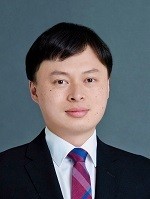 Chi Chun Wong obtained BSc (2003-2005) and M.Phil. (2005-2007) degrees from the University of Hong Kong, before pursuing a PhD at the University of Leeds, UK, 2008-2011. He joined the Chinese University of Hong Kong (CUHK) in 2013 and since 2019 has been an Assistant Professor in the Department of Medicine & Therapeutics, and a member of the State Key Laboratory of Digestive Disease. His research interests are primarily in the field of gastrointestinal cancers, trying to understand their molecular basis and develop therapeutic approaches to inhibit tumorigenesis, ultimately contributing to improved patient care. He has published >100 articles in peer-reviewed journals, including Cell, Cancer Cell, Nat Rev Clin Oncol, Gastroenterology, Gut, Sci Transl Med, Nat Microbiol, Hepatology, and Nat Commun.
Chi Chun Wong obtained BSc (2003-2005) and M.Phil. (2005-2007) degrees from the University of Hong Kong, before pursuing a PhD at the University of Leeds, UK, 2008-2011. He joined the Chinese University of Hong Kong (CUHK) in 2013 and since 2019 has been an Assistant Professor in the Department of Medicine & Therapeutics, and a member of the State Key Laboratory of Digestive Disease. His research interests are primarily in the field of gastrointestinal cancers, trying to understand their molecular basis and develop therapeutic approaches to inhibit tumorigenesis, ultimately contributing to improved patient care. He has published >100 articles in peer-reviewed journals, including Cell, Cancer Cell, Nat Rev Clin Oncol, Gastroenterology, Gut, Sci Transl Med, Nat Microbiol, Hepatology, and Nat Commun.
Jonathan Zhao - USA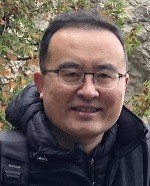 Dr. Jonathan (Changsheng) Zhao is Associate Professor of Human Genetics, with bioinformatics expertise in genomic data analysis. He received his M.D. degree from Beijing University and also a master's degree in computer science and Math from the US. His research primarily utilizes bioinformatics approaches to analyze high-throughput genomic data, aiming to unravel the molecular mechanisms underlying prostate cancer. Over the years, he has garnered extensive experience in Cancer Genomics and Bioinformatics, particularly in analyzing various data types such as Microarray, ChIP-seq, RNA-seq, ATAC-seq, scRNA-seq, scATAT-seq, Hi-C, Spatial Transcriptomics, MeDIP-Seq, BS-Seq, and Nanopore Long-read sequencing. He has developed numerous computational pipelines for the routine processing of NGS data and is proactive in integrating newly published genomic data and acquiring advanced bioinformatics skills/tools. He is extending his research to other types of urological cancers, such as kidney and bladder cancers. Additionally, his collaborative skills are well-demonstrated through multiple co-investigators grants and a wealth of co-authored publications.
Dr. Jonathan (Changsheng) Zhao is Associate Professor of Human Genetics, with bioinformatics expertise in genomic data analysis. He received his M.D. degree from Beijing University and also a master's degree in computer science and Math from the US. His research primarily utilizes bioinformatics approaches to analyze high-throughput genomic data, aiming to unravel the molecular mechanisms underlying prostate cancer. Over the years, he has garnered extensive experience in Cancer Genomics and Bioinformatics, particularly in analyzing various data types such as Microarray, ChIP-seq, RNA-seq, ATAC-seq, scRNA-seq, scATAT-seq, Hi-C, Spatial Transcriptomics, MeDIP-Seq, BS-Seq, and Nanopore Long-read sequencing. He has developed numerous computational pipelines for the routine processing of NGS data and is proactive in integrating newly published genomic data and acquiring advanced bioinformatics skills/tools. He is extending his research to other types of urological cancers, such as kidney and bladder cancers. Additionally, his collaborative skills are well-demonstrated through multiple co-investigators grants and a wealth of co-authored publications.
Huarong Chen - China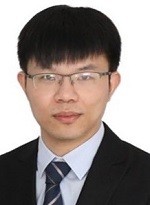 Dr. Huarong Chen is currently a Research Assistant Professor in the Department of Anaesthesia and Intensive Care, and Principal Investigator (PI) in the State Key Laboratory of Digestive Disease & Li Ka Shing Institute of Health Sciences of the Chinese University of Hong Kong. His research focuses on investigating functional, mechanistic, and clinical significance of RNA modifications in the pathogenesis of Gastrointestinal (GI) cancer and infectious diseases. As of 2024, he has published 63 articles in peer-reviewed journals with total impact factors of 793 and h-index of 27, 20 of which he is the first or corresponding author, including Gastroenterology (2020, 2022), Theranostics (2019, 2022), eBioMedicine, and Oncogene (2017, 2018, 2022, 2023). As a PI, he has successfully secured 6 external grants and 7 internal university grants over the past three years, amounting to a total of over 7.8 million HK dollars. In 2023, he was honored as an Emerging Leader in the field of Oncology, as well as the Top Reviewers Award by the Oncogene journal. In addition, he was awarded the Poster of Distinction Award at DDW in 2021, the Young Investigator Award by the Hong Kong Society for Immunology in 2020, and the Basic Science Travel Grant at UEGW in 2016
Dr. Huarong Chen is currently a Research Assistant Professor in the Department of Anaesthesia and Intensive Care, and Principal Investigator (PI) in the State Key Laboratory of Digestive Disease & Li Ka Shing Institute of Health Sciences of the Chinese University of Hong Kong. His research focuses on investigating functional, mechanistic, and clinical significance of RNA modifications in the pathogenesis of Gastrointestinal (GI) cancer and infectious diseases. As of 2024, he has published 63 articles in peer-reviewed journals with total impact factors of 793 and h-index of 27, 20 of which he is the first or corresponding author, including Gastroenterology (2020, 2022), Theranostics (2019, 2022), eBioMedicine, and Oncogene (2017, 2018, 2022, 2023). As a PI, he has successfully secured 6 external grants and 7 internal university grants over the past three years, amounting to a total of over 7.8 million HK dollars. In 2023, he was honored as an Emerging Leader in the field of Oncology, as well as the Top Reviewers Award by the Oncogene journal. In addition, he was awarded the Poster of Distinction Award at DDW in 2021, the Young Investigator Award by the Hong Kong Society for Immunology in 2020, and the Basic Science Travel Grant at UEGW in 2016
Y Eugene Chinn - China Y Eugene Chinn (Chin), a medical graduate from Zhejiang Chinese Medicine University in 1982 and Beijing University School of Medicine in 1985. Dr. Chinn received his PhD of Environmental Medicine from NYU in 1993 and his post-doctoral training from Yale University (1994-1998). Dr. Chinn became an assistant professor of Pathology and Experimental Medicine Department at Brown University in 1998. He left Brown as an associate professor of Surgical Research in 2012 and relocated his lab at NYU in 2012. Dr. Chinn joined the Health Science Institute of Chinse Academy of Sciences (CAS) Shanghai and Shanghai Jiao Tong University in 2013 as a full-time professor. He served as the dean of Medicine, Soochow University School of Medicine from 2017 to 2019. Dr. Chinn is now the director of Cancer Center, Binzhou Medical College as well as the executive director of Clinical Medicine Research Institute Zhejiang Provincial Peoples Hospital (Soochow University). Dr. Chinn’s lab focuses on the mechanistic study of the JAK-STAT pathway in cancer cells, stem cells, as well as in immune cells. He reported STAT1 activation by interferons in different cancer cells leading to cell growth arrest (Chin et al Science 1996). His lab at Brown University reported STAT3 as well as other members of this family rely on acetylation for activation (Yuan et al Science 2005; Ma et al PNAS 2011; Zhang et al Cell Death Diff). He proposed acetylation-dependent signal transduction (Tang et al Cell 2008). In 2002, Chin’s lab invented antibody array technology for protein-protein interaction screening (Wang et al MCB 2002) and received the USA patent on antibody array technology. Recently, his lab discovered a small chemical compound (PSdis), which can effectively disrupt PD-1/SHP-2 interaction for potential cancer therapy by targeting the immune checkpoint. His current research focuses on protein editing and posttranslational modifications. Dr. Chinn served as the Editor-in-Chief for Cancer Cell International from 2016-2018, as an editorial board member for JBC from 2008-2014, and is currently an Oncogene editorial board member.
Y Eugene Chinn (Chin), a medical graduate from Zhejiang Chinese Medicine University in 1982 and Beijing University School of Medicine in 1985. Dr. Chinn received his PhD of Environmental Medicine from NYU in 1993 and his post-doctoral training from Yale University (1994-1998). Dr. Chinn became an assistant professor of Pathology and Experimental Medicine Department at Brown University in 1998. He left Brown as an associate professor of Surgical Research in 2012 and relocated his lab at NYU in 2012. Dr. Chinn joined the Health Science Institute of Chinse Academy of Sciences (CAS) Shanghai and Shanghai Jiao Tong University in 2013 as a full-time professor. He served as the dean of Medicine, Soochow University School of Medicine from 2017 to 2019. Dr. Chinn is now the director of Cancer Center, Binzhou Medical College as well as the executive director of Clinical Medicine Research Institute Zhejiang Provincial Peoples Hospital (Soochow University). Dr. Chinn’s lab focuses on the mechanistic study of the JAK-STAT pathway in cancer cells, stem cells, as well as in immune cells. He reported STAT1 activation by interferons in different cancer cells leading to cell growth arrest (Chin et al Science 1996). His lab at Brown University reported STAT3 as well as other members of this family rely on acetylation for activation (Yuan et al Science 2005; Ma et al PNAS 2011; Zhang et al Cell Death Diff). He proposed acetylation-dependent signal transduction (Tang et al Cell 2008). In 2002, Chin’s lab invented antibody array technology for protein-protein interaction screening (Wang et al MCB 2002) and received the USA patent on antibody array technology. Recently, his lab discovered a small chemical compound (PSdis), which can effectively disrupt PD-1/SHP-2 interaction for potential cancer therapy by targeting the immune checkpoint. His current research focuses on protein editing and posttranslational modifications. Dr. Chinn served as the Editor-in-Chief for Cancer Cell International from 2016-2018, as an editorial board member for JBC from 2008-2014, and is currently an Oncogene editorial board member.
2022
Daniel Frigo - USA Dr. Daniel Frigo received his B.S. in biochemistry from the University of Notre Dame and earned his Ph.D. in molecular and cellular biology from Tulane University. He was then awarded a postdoctoral fellowship and appointed to research scientist within the Department of Pharmacology & Cancer Biology at Duke University Medical Center in Durham, NC. He was appointed to a faculty position as an Assistant Professor at the University of Houston’s Center for Nuclear Receptors & Cell Signaling and the Department of Biology & Biochemistry in 2010. In 2017, he moved his laboratory to The University of Texas MD Anderson Cancer Center where he is currently a tenured Associate Professor in the Departments of Cancer Systems Imaging (primary) and Genitourinary Medical Oncology (secondary). He remains an Adjunct Associate Professor with the University of Houston. Dr. Frigo’s research is focused on understanding the basic biology of prostate cancer for the purpose of developing new therapies to treat the advanced stages of the disease.
Dr. Daniel Frigo received his B.S. in biochemistry from the University of Notre Dame and earned his Ph.D. in molecular and cellular biology from Tulane University. He was then awarded a postdoctoral fellowship and appointed to research scientist within the Department of Pharmacology & Cancer Biology at Duke University Medical Center in Durham, NC. He was appointed to a faculty position as an Assistant Professor at the University of Houston’s Center for Nuclear Receptors & Cell Signaling and the Department of Biology & Biochemistry in 2010. In 2017, he moved his laboratory to The University of Texas MD Anderson Cancer Center where he is currently a tenured Associate Professor in the Departments of Cancer Systems Imaging (primary) and Genitourinary Medical Oncology (secondary). He remains an Adjunct Associate Professor with the University of Houston. Dr. Frigo’s research is focused on understanding the basic biology of prostate cancer for the purpose of developing new therapies to treat the advanced stages of the disease.
Huarong Chen - China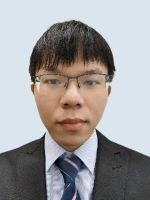 Dr Huarong Chen is currently a research assistant professor in the Department of Anaesthesia and Intensive Care, and principal investigator in the State Key Laboratory of Digestive Disease of the Chinese University of Hong Kong. His research focuses on investigating functional, mechanistic, and clinical significance of RNA modifications in the pathogenesis of Gastrointestinal (GI) cancer and infectious diseases. As of 2023, he has published 49 articles in peer-reviewed journals with total impact factors of 630 and h-index of 22, 18 of which he is the first or corresponding author, including Gastroenterology (2020, 2022), Theranostics (2019, 2022), Biochim Biophys Acta Rev Cancer (2020, 2022), EbioMedicine and Oncogene (2017, 2018, 2022). He has obtained 5 external competitive grants (2020-2022) with a total amount of over 5 million Hong Kong dollars as PI. In recognition of his contribution to medical sciences, he has been awarded Poster of distinction (DDW 2021), Young investigator award (Hong Kong Society for Immunology 2020) and Basic Science Travel Grants (UEGW 2016).
Dr Huarong Chen is currently a research assistant professor in the Department of Anaesthesia and Intensive Care, and principal investigator in the State Key Laboratory of Digestive Disease of the Chinese University of Hong Kong. His research focuses on investigating functional, mechanistic, and clinical significance of RNA modifications in the pathogenesis of Gastrointestinal (GI) cancer and infectious diseases. As of 2023, he has published 49 articles in peer-reviewed journals with total impact factors of 630 and h-index of 22, 18 of which he is the first or corresponding author, including Gastroenterology (2020, 2022), Theranostics (2019, 2022), Biochim Biophys Acta Rev Cancer (2020, 2022), EbioMedicine and Oncogene (2017, 2018, 2022). He has obtained 5 external competitive grants (2020-2022) with a total amount of over 5 million Hong Kong dollars as PI. In recognition of his contribution to medical sciences, he has been awarded Poster of distinction (DDW 2021), Young investigator award (Hong Kong Society for Immunology 2020) and Basic Science Travel Grants (UEGW 2016).
Cristine Alves da Costa - France Dr Cristine Alves da Costa is a research director (DR2) at INSERM and manages a team at the Institute of Molecular and Cellular Pharmacology (IPMC-CNRS, UMR7275). She is graduated in Pharmacy-Biochemistry from the Faculty of Pharmaceutical Sciences, University Estadual Paulista "Prof. Júlio de Mesquita Filho" Sao Paulo, Brazil and a PhD in Pharmacy-Biochemistry from the Faculty of Pharmaceutical Sciences, University of São Paulo, USP, Brazil in 1997. Actually, she drives a team that develop projects aiming the delineation of the role of Parkinson’s disease associated (a-synuclein, parkin, etc) proteins in the origin of cell death in neurodegenerative disorders and tumor suppression. Her research interests include Parkinson’s and Alzheimer’s disease molecular and cell biology, apoptosis, autophagy and ER stress. Moreover, she is also interested in the interplay between these two pathologies via common molecular denominators and the link between neurodegenerative disorders and human brain cancer.
Dr Cristine Alves da Costa is a research director (DR2) at INSERM and manages a team at the Institute of Molecular and Cellular Pharmacology (IPMC-CNRS, UMR7275). She is graduated in Pharmacy-Biochemistry from the Faculty of Pharmaceutical Sciences, University Estadual Paulista "Prof. Júlio de Mesquita Filho" Sao Paulo, Brazil and a PhD in Pharmacy-Biochemistry from the Faculty of Pharmaceutical Sciences, University of São Paulo, USP, Brazil in 1997. Actually, she drives a team that develop projects aiming the delineation of the role of Parkinson’s disease associated (a-synuclein, parkin, etc) proteins in the origin of cell death in neurodegenerative disorders and tumor suppression. Her research interests include Parkinson’s and Alzheimer’s disease molecular and cell biology, apoptosis, autophagy and ER stress. Moreover, she is also interested in the interplay between these two pathologies via common molecular denominators and the link between neurodegenerative disorders and human brain cancer.
Yi Bao - China Yi Bao obtained his PhD in Cancer Biology from National University of Singapore and his MSc in Molecular Medicine from the University of Sheffield. He was trained on Precision Oncology by Professor Qiang Yu during his PhD, and further pursued his postdoctoral trainings on Immuno-oncology under the supervision of Professor Jun Yu, and subsequently Professor Arul Chinnaiyan. His work focuses on identification of predictive biomarkers and therapeutic targets for personalized medicine, particularly immunotherapies. He has authored or coauthored research articles published in prestigious peer-reviewed journals, such as Nat. Commun., Nat. Med., JCI, JEM, etc.
Yi Bao obtained his PhD in Cancer Biology from National University of Singapore and his MSc in Molecular Medicine from the University of Sheffield. He was trained on Precision Oncology by Professor Qiang Yu during his PhD, and further pursued his postdoctoral trainings on Immuno-oncology under the supervision of Professor Jun Yu, and subsequently Professor Arul Chinnaiyan. His work focuses on identification of predictive biomarkers and therapeutic targets for personalized medicine, particularly immunotherapies. He has authored or coauthored research articles published in prestigious peer-reviewed journals, such as Nat. Commun., Nat. Med., JCI, JEM, etc.
Zoran Culig - Austria Zoran Culig received his M.D. from the University of Zagreb, Croatia, in 1990. He continued his postdoctoral research at the Department of Urology, Medical University of Innsbruck, Austria. His research is focused on mechanisms of progression and therapy resistance in prostate cancer, in particular on androgen receptor and its co-activators during disease progression. He publishes regularly in pathology, oncology and endocrinology journals (American Journal of Pathology, Molecular Cancer Research, Molecular Cancer Therapeutics, Endocrine-Related Cancer). His research is supported by the Austrian Science Fund FWF and the European Union (Eureka). Zoran Culig has received prestigious international awards such as Dominique Chopin Award, C.E. Alken Award and awards by the European Association of Urology.
Zoran Culig received his M.D. from the University of Zagreb, Croatia, in 1990. He continued his postdoctoral research at the Department of Urology, Medical University of Innsbruck, Austria. His research is focused on mechanisms of progression and therapy resistance in prostate cancer, in particular on androgen receptor and its co-activators during disease progression. He publishes regularly in pathology, oncology and endocrinology journals (American Journal of Pathology, Molecular Cancer Research, Molecular Cancer Therapeutics, Endocrine-Related Cancer). His research is supported by the Austrian Science Fund FWF and the European Union (Eureka). Zoran Culig has received prestigious international awards such as Dominique Chopin Award, C.E. Alken Award and awards by the European Association of Urology.
